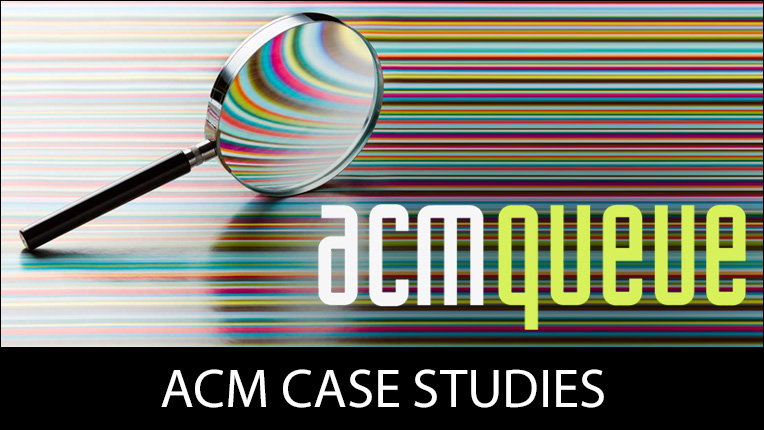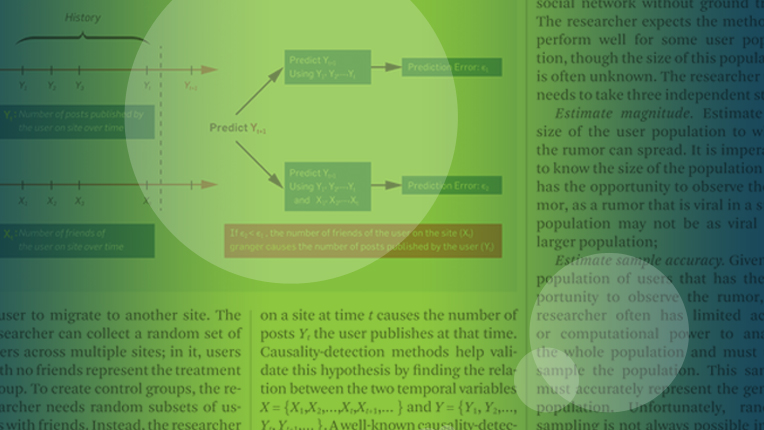ACM Peer Review Policy
Introduction
Updated December 1, 2022
ACM recognizes that the quality of a refereed publication rests primarily on the impartial judgment of their volunteer reviewers. When an author makes a submission, a confidential review process is initiated. The aim of the review process is to make an appropriate and timely decision on whether a submission should be published. Such decisions are based on proper review by well-qualified and impartial reviewers in accordance with standards of high-quality peer review.
The form of reviewing for most ACM journals and transactions, as well as for some magazines, is single-anonymous peer review. Editors and administrators of ACM publications must keep the identities of all reviewers of particular manuscripts hidden from authors, other reviewers, and the public. To facilitate this, reviewers access and perform their review of the text via a manuscript submission system, and their identities are kept confidential. Identities of reviewers may be divulged to members of a publication's Editorial Board or to ACM staff as needed to solicit expert advice in special circumstances, such as with investigations into alleged violations of publications policies or ethical misconduct. In such cases, the identity of a reviewer may also be made known to other reviewers of the same manuscript, provided that the consent of all affected reviewers is obtained. Reviewers must also maintain the confidentiality of reviewer identities, as well as the reviews themselves, that are communicated to them at any time. An exception to this confidentiality is made in the case of review of conference submissions by a program committee. It is permissible to make reviews and the identity of reviewers visible to the entire program committee, provided that all committee members and solicited reviewers are notified in advance of this practice. (A further exception occurs when a program committee member is also an author. Names of reviewers can never be disclosed to the author). It is against ACM publications policy for authors to make any attempt to determine their reviewer's identities, and will not engage in any speculation regarding this.
This policy does not prevent the simple listing of all reviewers of a particular volume or proceedings without reference to particular manuscripts for the purpose of acknowledgment, or the appearance of reviewer names in a composite database for use by the editors.
Reviewers can expect ACM to
- Maintain their anonymity in accordance with the ACM policy on reviewer anonymity
- Ask them if they are willing to review before the submission is sent to them. The time frame for the review will accompany its request.
- Provide guidelines, in accordance with stated journal policy, on what constitutes a reviewing conflict of interest
- Request only reviews of submissions for which the editor feels they have expertise and request only a limited number of reviews over the course of a year
- Recognize the right to decline an invitation to review
- Give a reasonable length of time for a review, where the particular length of time depends on the publication
- Not routinely ask them to make up for delays introduced by other participants in the reviewing cycle
- Only ask them to provide reviews for submissions that satisfy either stated publications requirements (e.g., page count restrictions) or which are appropriate for the publication
- Acknowledge their efforts in the publication process, while maintaining confidentiality of the submissions they reviewed
- If requested, inform them of the editorial decisions for the submission, including the author-visible portion of reviews
- Inform them who will see their review
- Recognize that reviewers own the copyright for their reviews.
And ACM expects reviewers to
- Make known to the requesting editor any possible conflicts of interest
- Review the submission by the agreed-upon deadline
- Understand the charter, peer review standards, and procedures of the publication
- Read the entire submission carefully, prepare the review with care, apply professional judgment, use appropriate language in a review, and fill out provided review forms in full
- Adequately document in their review the reasons behind their recommendations
- Review subsequent revisions of a submission that they initially reviewed, should the editor feel that is appropriate
- Maintain the confidentiality of the existence and status of submissions of which the reviewer becomes aware
- Not use results from submitted works in their works, research or grant proposals, unless and until that material appears in other publicly available formats, such as a technical report or as a published work
- Not distribute a submission to anyone unless approved by the editor handling the submission
- Maintain the anonymity of the other reviewers, should they become known to that reviewer.
Peer Review in ACM and ICPS Conferences
The above policy applies to all ACM publications, including ACM and International Conference Proceedings Series (ICPS) Conferences. However, there are additional aspects of how peer review occurs for conferences, in comparison to ACM journals and magazines. For this reason, ACM has an additional Policy on Conference Publication.
Please see the ACM Conference Publication Policy
Submitting and Investigating Potential Violations of this Policy
See Policy on Submitting and Investigating Claims
Confidentiality Policy
Communicating Results of Investigations
See Policy on Communicating Results of Investigations
Appealing Violation Decisions
See Appealing Policy Violation Decisions
Contact ACM
The ACM Director of Publications should be contacted for any:
- Questions about the interpretation of this policy
- Questions about appeals of decisions
- Requests for deviations from, or extensions to, this policy
- Reporting of egregious behavior related to this policy, including purposeful evasion of the policy or false reporting
Mailing address:
ACM Director of Publications
Association for Computing Machinery
1601 Broadway, 10th Floor
New York, NY 10019-7434
Phone: +1-212-626-0659
Or via email:
[email protected]
ACM Case Studies
Written by leading domain experts for software engineers, ACM Case Studies provide an in-depth look at how software teams overcome specific challenges by implementing new technologies, adopting new practices, or a combination of both. Often through first-hand accounts, these pieces explore what the challenges were, the tools and techniques that were used to combat them, and the solution that was achieved.

Publish with ACM
ACM's prestigious conferences and journals seek top-quality papers in all areas of computing and IT. It is now easier than ever to find the most appropriate venue for your research and publish with ACM.

Lifelong Learning
ACM offers lifelong learning resources including online books and courses from Skillsoft, TechTalks on the hottest topics in computing and IT, and more.
